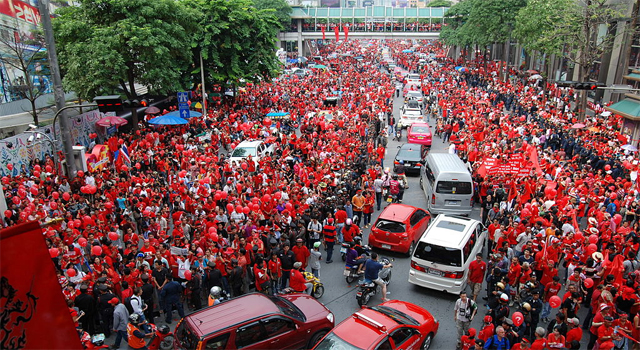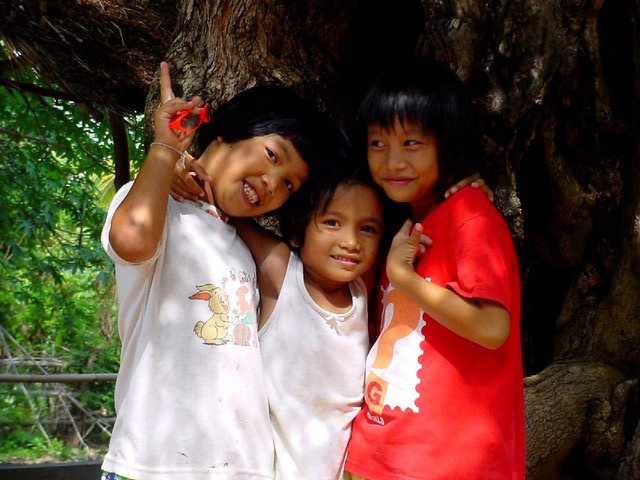Discrimination and economic inequality against the Rural Thai by the wealthy urban elites in Thailand is a major factor in instigating protests and political turmoil in the nation, according to a recently released report. The study by the Asia Foundation focused on Isan, the region of northeastern Thailand that is populous but poor, and feels left behind by the thriving people in the rest of the nation.

The report, “Thailand’s Inequality: Myths and Reality of Isan” by lead author Rattana Lao, was featured in a news story on July1. She was quoted as stating, “Research [has] shown that one of the leading indicators that pushed people toward political turmoil and protest is the fact that they are not satisfied with their economic condition and [the] uneven treatment … that they receive.” The purpose of the study was, in part, to focus the nation on this poor section, which has nearly a third of Thailand’s 69 million people but is generally dry, undeveloped, and cut off from the breakneck growth of the rest of the country.
Isan has routinely voted for populist politicians who pledged to change the dynamics between the urban elites and the rural poor. Thaksin Shinawatra was elected in 2001 on his pledge to challenge the balance of power in favor of the Rural Thai, and his sister, Yingluck Shinawatra, was elected for the same reason in 2011. Both were unseated by military coups, Thaksin in 2006 Yingluck in 2014. The army is allied with the royalist/urban elite power structure. Ms. Rattana argues that “if the income is dispersed more equally among the provinces and people feel satisfied with their living standard … I think the feeling of being disparaged, the feeling of being uneven would be reduced.”

The report appears to go well beyond an analysis of the political situation in rural Thailand. The Asia Foundation, in its investigation of Isan households, found that more had decreased incomes in recent years than had increased incomes. More of the Rural Thai in Isan felt that their neighborhoods were declining than were improving. Admittedly fewer residents live in poverty than years before but Isan still has more impoverished people than any other part of the nation. Almost 9 out of 10 are in debt and they earn less than the rest of the country, on average.
The survey by the foundation did find that while many of the people from Isan migrate to find work in other sections of Thailand, they would prefer to stay in their own provinces. A sizeable majority of the Isan residents would be in favor of more industry in their rural, farming communities. Ms. Rattana urged the nation to look for more ways to invest in Isan since the rural Thai clearly do want to remain in their own communities.

The researcher also said that the people of Isan would benefit from an improvement in the quality of their educations, which would assist them in filling job openings. She said that she had shared the research findings with the National Economic and Social Development Council, which advises the prime minister.
Wilailak Maiwong, who is an analyst with the development council, said that part of the problem with development taking place in Isan is that the region lacks adequate infrastructure such as supplies of electricity and water. However, Thosaporn Sirisamphand, the Secretary General of the council, said in an interview published in January that the government, the military junta, has been taking steps to address inequalities nationwide.
Countering that, the article quoted the dean of the faculty of political science at Ubon Ratchathani University, Titipol Phakdeewanich, who emphasized that Thailand’s elites would have to learn to respect the poor Rural Thai in Isan before anything would really change there. “If the Thai elite and middle class change their perception, I believe that this would be one of the main things that can help to reduce tensions between … the people and the state,” he said.

